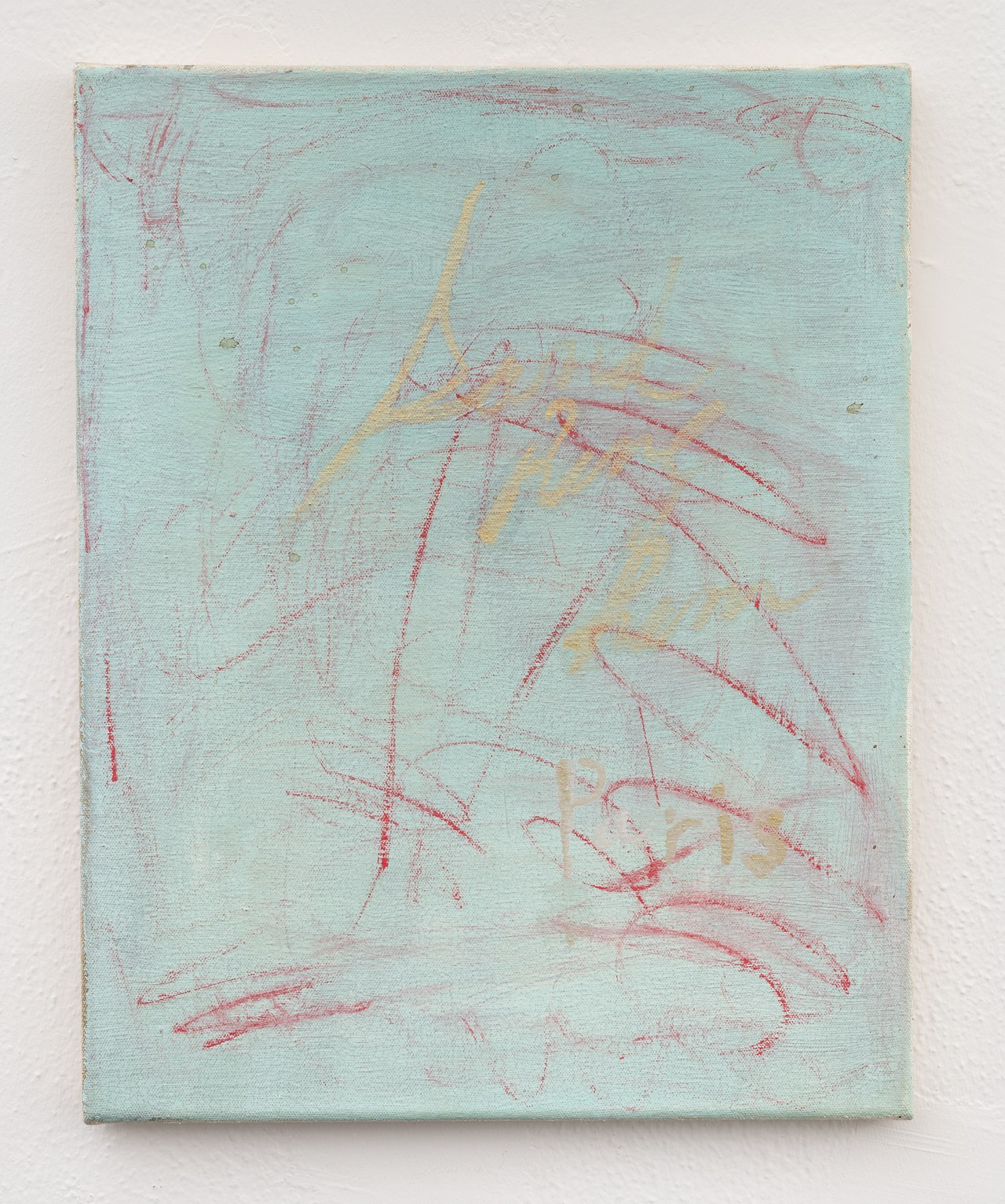Festival of Gratitude: Muammar Gaddafi
2022 - NFT (NFT)
00:16 minutes
Walid Raad
For his first NFT release artist Walid Raad made a series of animated birthday cakes, titled Festival of Gratitude , for some of the world’s most toxic and larger-than-life leaders. The series of looping three-dimensional animated videos are only seconds long—a timespan familiar to gif and online meme culture—and feature global dictators, strongmen and strongwomen, kings and queens, princes and princesses, emirs, sheikhs and sheikhas, sultans, shahs, emperors and empresses, popes, ayatollahs, presidents, prime ministers, CEOs, and GOATs. The subject of cakes has a specific personal meaning for Raad, whose first job as an adolescent was photographing pastries at a bakery in Beirut. It’s unclear if the cake is implicitly celebrating the passing of Gaddafi, reminding us of his long reign, or performing the gaudy fanfare befitting a dictator. For this particular work, Festival of Gratitude: Muammar Gaddafi , the artist features Muammar Muhammad Abu Minyar al-Gaddafi, the Libyan military officer, revolutionary, and finally a brutal dictator of Libya from 1969 to 2011. This NFT was minted during what would’ve been Gaddafi’s 80th year, if he hadn’t been apprehended and killed by Misrata fighters while fleeing Sirte, Gaddafi’s hometown, on October 20, 2011. The series Festival of Gratitude was produced by Artwrld.
Walid Raad is a Lebanese artist whose work investigates the way historical events of physical and psychological violence affect bodies, minds, culture, and memory. Spanning across photography, video, installation and performance, Raad’s practice critically addresses biases of representation and story-telling in historical discourses and narratives, especially in a Middle-Eastern context. His works have been concerned with historical omissions and unaddressed narratives in relation to the political and socio-economic realities that structure contemporary Lebanon and the other countries from the region. In 1989, he notably founded the Atlas Group to research and document the recent history of Lebanon, with the emphasised aim to shed light on and confront alternative narratives to the coverage and documentation of the 1975 and 1990 Lebanese wars.
Colors:
Related works of genres: » lebanese contemporary artists, » video artists
» see more

© » KADIST
Joachim Koester
2007Tarantism is the name of disease which appeared in southern Italy, resulting from the bite of a spider called Tarantula...

© » KADIST
Korakrit Arunanondchai
2017His untitled paintings express his concern regarding perception in abstract form...

© » KADIST
Akram Zaatari
1950“While taking the picture it was challenging to make the boys sit properly without moving...

© » KADIST
Joachim Koester
2006Physical and mental exploration have been founding elements in Joachim Koester’s research for several years...
Other related works, blended automatically
» see more

© » KADIST
Walid Raad
2009“The Lebanese wars of the past three decades affected Lebanon’s residents physically and psychologically: from the hundred thousand plus who were killed; to the two hundred thousand plus who were wounded; to the million plus who were displaced; to the even more who were psychologically traumatized...
Related works sharing similar palette
» see more

© » KADIST
Amie Siegel
2013Winter is a film installation of multiple tenses—shot in the recent past, depicting an unknown future, unfolding (and changing) in the present of the exhibition...

© » KADIST
Through her work, Daniela Ortiz (born in Peru in 1985) generates spaces of tension in which she explores concepts of nationality, racialization, social class and gender in order to understand how violence, persecution of racialized communities, inclusion and exclusion operate in occidental societies...
Other works by: » Walid Raad
» see more

© » KADIST
Walid Raad
2009“The Lebanese wars of the past three decades affected Lebanon’s residents physically and psychologically: from the hundred thousand plus who were killed; to the two hundred thousand plus who were wounded; to the million plus who were displaced; to the even more who were psychologically traumatized...
Related artist(s) to: Walid Raad » Akram Zaatari, » Joana Hadjithomas, » Khalil Joreige, » Lawrence Weiner, » Jalal Toufic, » Allan Sekula, » Emily Jacir, » Hans Ulrich Obrist, » Hito Steyerl, » Liam Gillick
» see more

© » KADIST
Allan Sekula
1973San Pedro is a seaside city, part of the Los Angeles Harbor, sitting on the edge of a channel...

© » KADIST
Akram Zaatari
1960“When you position your hand on someone’s shoulder, your shoulders become straight and horizontal...

© » KADIST
Akram Zaatari
1950“Other photographers used to send me negatives of cross-eyed people, asking me to retouch them...
Related works found in the same semantic group
» see more

© » ARTS EQUATOR
(Episode 2) What's in a Scene - Nothing by Cake | ArtsEquator Thinking and Talking about Arts and Culture in Southeast Asia Articles November 23, 2020 ‘We are all but moving shadows and all our busy rushing ends up in nothing’ In this episode, Natalie Hennedige and Siti Khalijah Zainal unpack a scene from Cake ‘s Nothing and talk about the process and the inspiration behind the creation of the play, from the characters to multimedia design and more...

© » KADIST
Anne Samat
2018Anne Samat’s Puteri 3 references Ulek Mayang, a classical Malay dance, performed in a ritualistic pre-Islamic context...

© » KADIST
Yin-Ju Chen
One Universe, One God, One Nation was inspired by Hannah Arendt’s analysis of space exploration and by the astrological horoscope of Chinese political and military leader Chiang Kai-shek (1887-1975)...




